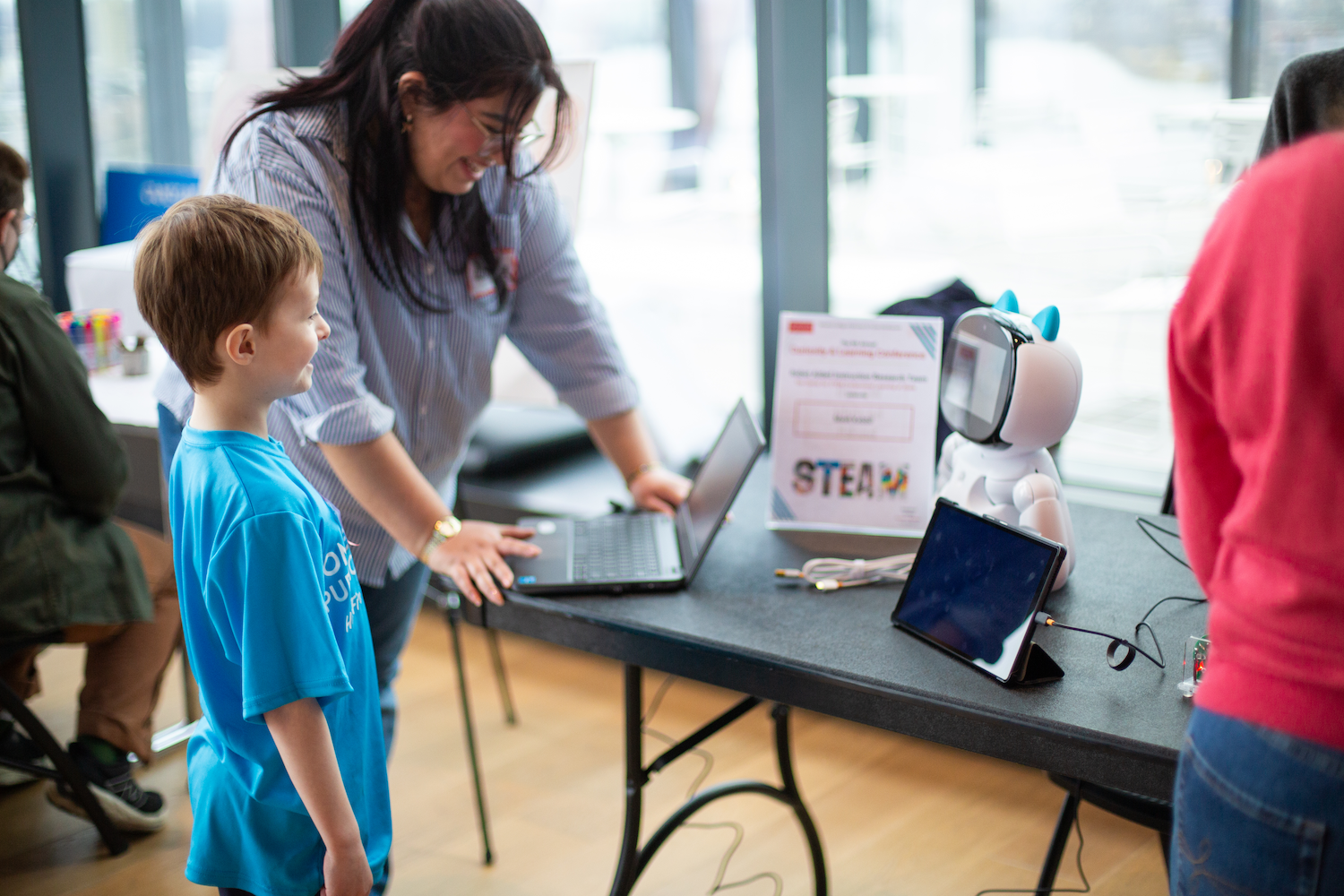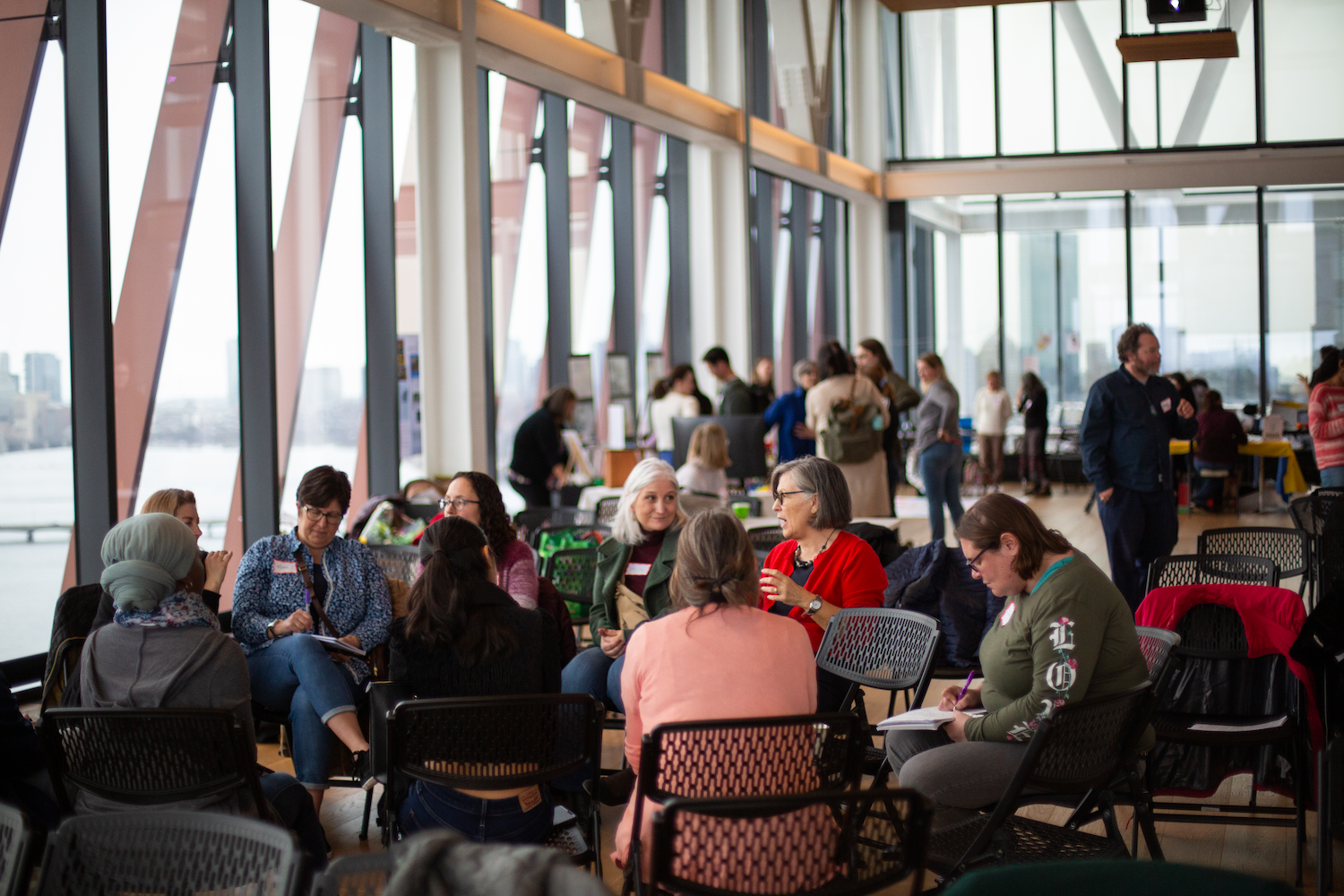STEM Achievement for ALL

Photos By Jay Kimball
STEM Achievement for ALL
Mission of new Center for STEM Professional Learning @ Scale on full display at BU Wheelock’s 2024 Curiosity & Learning Conference
Observing guinea pigs. Solving a circuit maze to make a light turn on. Contributing a design or phrase to a community art piece. Teaching the days of the week with a robot as an assistant. These were a few of the highlights from BU Wheelock’s Curiosity & Learning Conference, an
annual event held for the first time at the BU Center for Computing & Data Sciences on April 6, 2024. This year, the conference, which had interactive stations designed to showcase ideas for creating engaging lessons, focused on STEAM learning (science, technology, engineering, arts, and math).
TJ McKenna, a clinical assistant professor of science education, says this year’s conference was inspired by the work he does as leader of BU Wheelock’s new Center for STEM Professional Learning @ Scale, a hub of research and materials designed to help educators learn innovative and equitable methods of teaching STEM. Launched in summer 2023, the center offers creative programming that McKenna has developed or facilitates, to help science teachers meet education standards. “Overall, the center is aimed at thinking about higher-quality STEM teaching and learning through the lens of scale,” McKenna says. “What are the kinds of things we run into when we’re trying to provide support at the national level?”

The Curiosity & Learning Conference drew more than 80 educators, parents, and students from around New England, who participated in interactive stations designed to showcase ideas for creating engaging lessons. “It’s so fun. It’s all about play and encouraging interaction with people,” says TJ McKenna, a clinical assistant professor of science education and director of the Center for STEM Professional Learning @ Scale, which organized this year’s conference.

Educators benefit from several initiatives supported by the STEM Center, including Project Resilience, a movement to help teachers incorporate lessons on sustainability and resilience in STEM education, such as through units on food systems and climate science; Phenomena for NGSS (Next Generation Science Standards), a free online resource McKenna created to show instructors how to include everyday phenomena into their lessons; and the Next Generation Science eXemplar System (NGSX), an online professional development platform for educators.
“NGSX started around 2015, when the new Next Generation Science Standards came out, and there really wasn’t a system for teaching educators and educational leaders about these standards and how to implement them in their classrooms,” McKenna says. NGSX provides learning pathways to assist teachers in applying the standards.

Comments & Discussion
Boston University moderates comments to facilitate an informed, substantive, civil conversation. Abusive, profane, self-promotional, misleading, incoherent or off-topic comments will be rejected. Moderators are staffed during regular business hours (EST) and can only accept comments written in English. Statistics or facts must include a citation or a link to the citation.